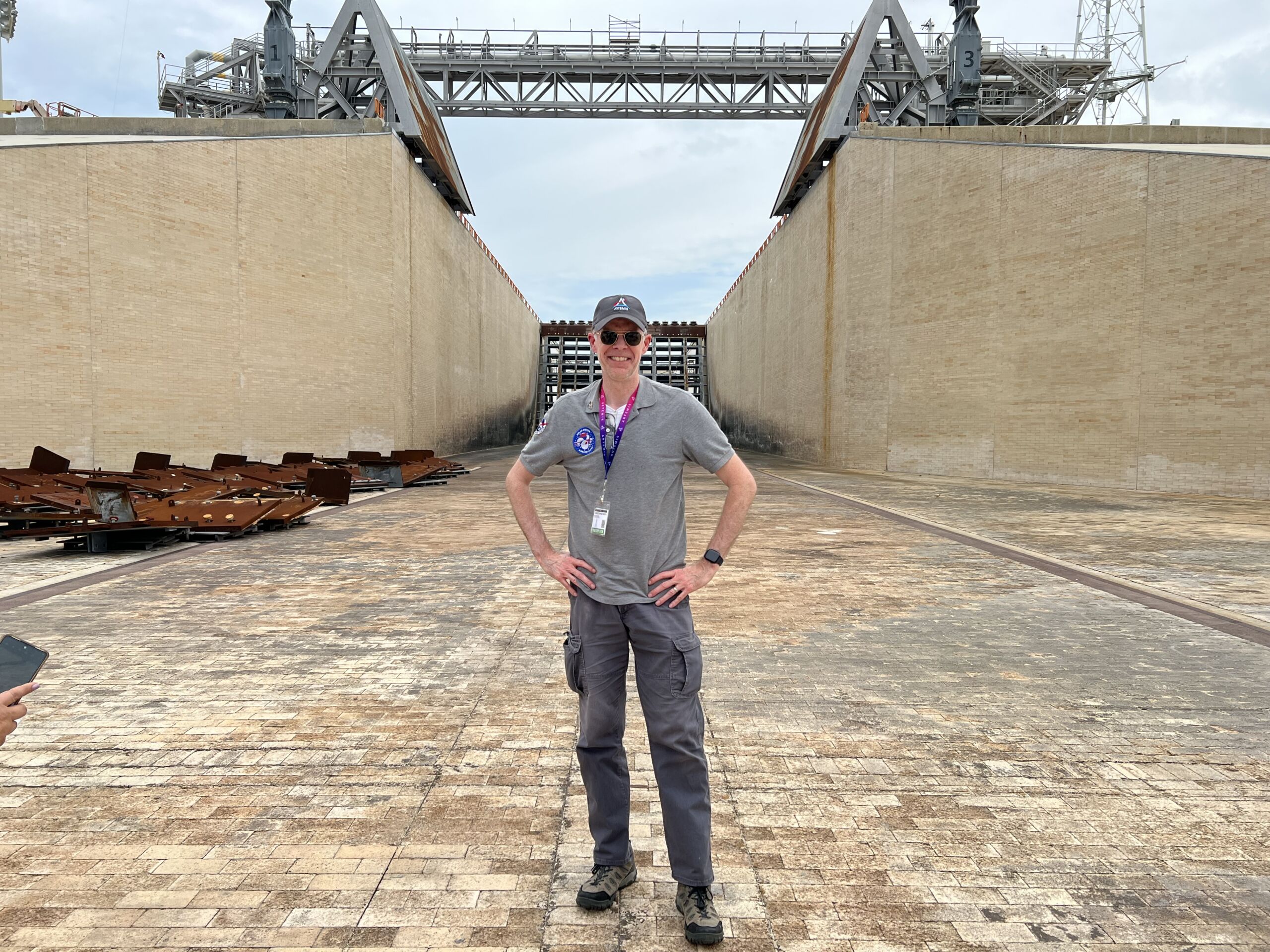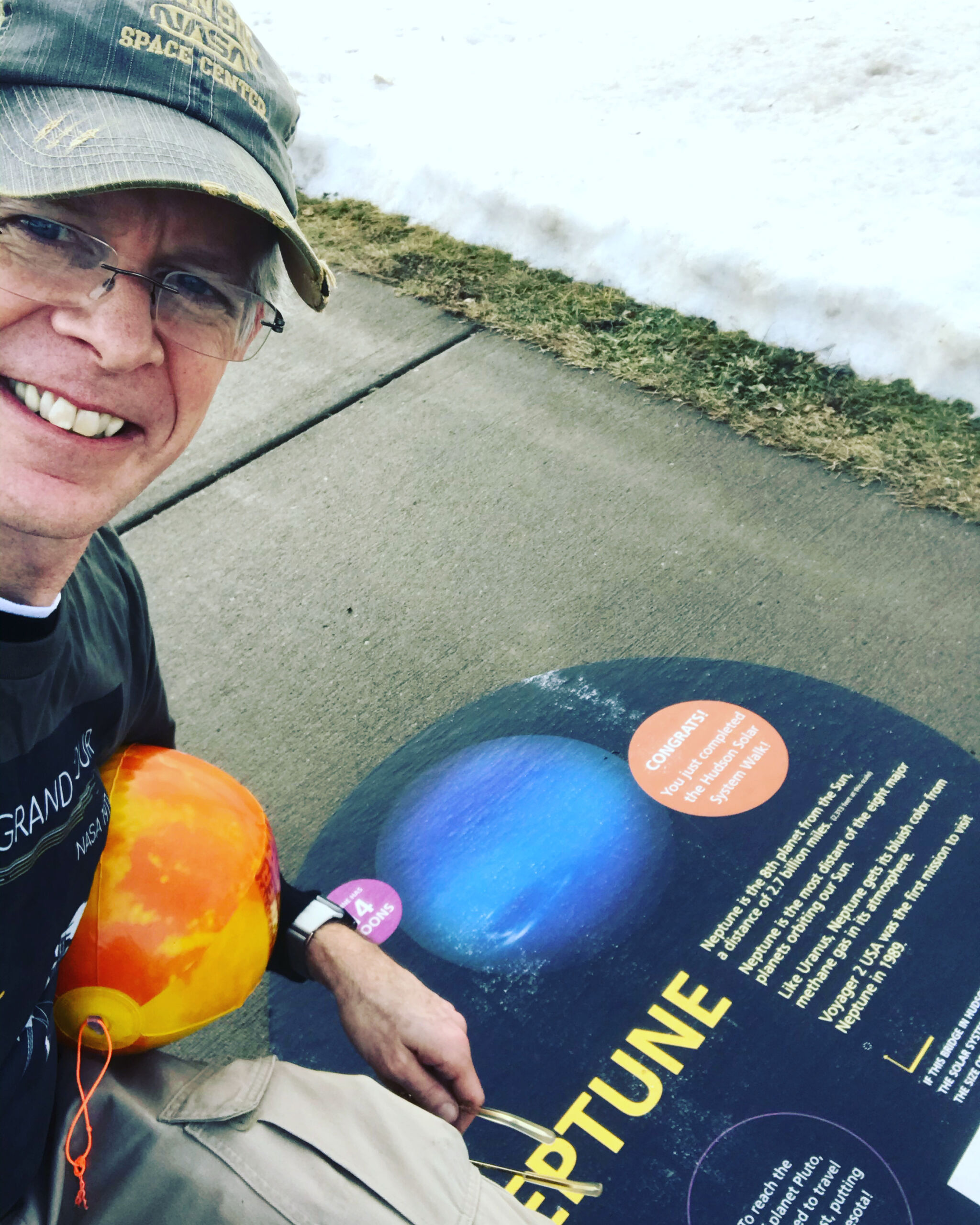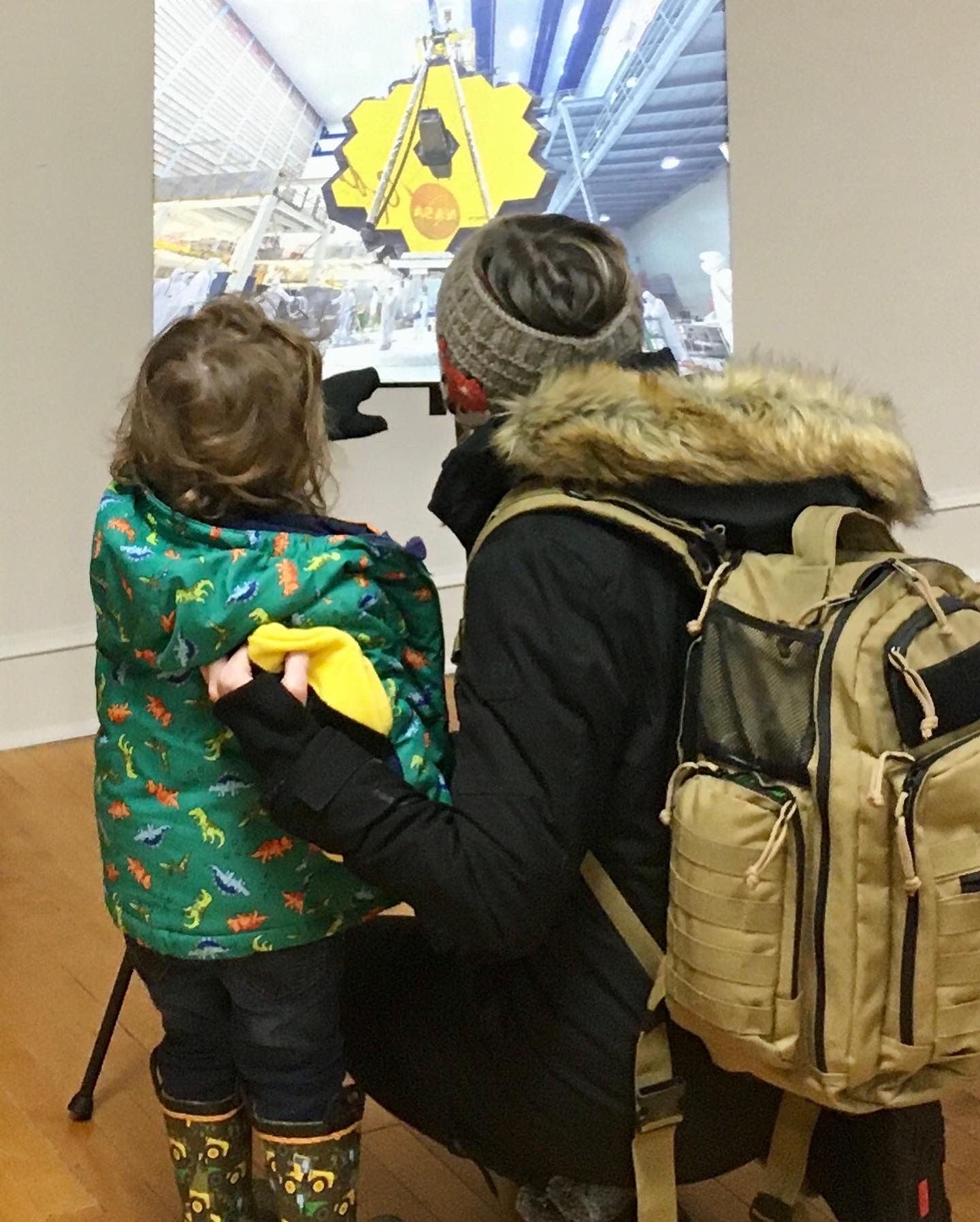(The author standing in the flame-trench of Pad 39-B at the Kennedy Space Center. Directly behind me is the flame-deflector which diverts the exhaust from the SLS rocket’s four RS-25 engines and two solid-rocket boosters, equally to each side of the deflector. In the foreground on the left side of the image, stacked on the ground, are the steel panels that have been removed from the flame-deflector. These were damaged by the greater than anticipated energy from the November 2022 launch of Artemis 1. These will all be replaced with new and stronger panels before the launch of Artemis II, currently scheduled for the end of 2023)
The Summer months bring special programming at the library. The annual Summer Reading Program, take & make kits, special performers, and for me a few opportunities for professional development. With my focus on STEAM programming at my library, I am always made aware of STEAM related conferences happening locally and nationally. Some of these conferences are geared to full-time K-12 teachers, and some of these conferences are open to informal educators as well.
An example of a conference I have recently attended; The Space Port Area Conference for Educators (SPACE) is a 3-day conference held near the Kennedy Space Center, Visitor’s Complex, at The Center for Space Education and the Astronaut Memorial Foundation. https://www.amfcse.org/upcoming-events/2022/11/21/2023-space-port-area-conference-for-educators-space
There is a conference fee for attending. If your library does not have professional development funds available to support you attending a conference, you can look into obtaining support from your local Rotary or Kiwanis group. The ready-to-go lesson plans and activities provided are already aligned with NGSS, and they have usually been fine tuned by the presenters, to provide you with an engaging, vetted, and easy to implement program. If obtaining the needed funds would still be too difficult, there are other conferences that offer virtual and scholarship options as well.
The Space Exploration Educators Conference (SEEC) is held annually at Space Center Houston. https://spacecenter.org/education-programs/educator-resources/seec/
The Virtual option is less expensive that attending in-person, and there are also scholarships available closer to the conference dates, which could be very helpful if your library lacks the resources at this time to support extensive professional development for staff. The virtual option also allows you to pull up any presentation, long after the conference, so you can keep adding to your slate of activity and programming options.
Another site to check on is the NASA Space grant Consortium page: https://www.nasa.gov/stem/spacegrant/home/Space_Grant_Consortium_Websites.html
Here you can find the contact information for your local state office, and you can find the funding opportunities and support that might be available to you. Many states hold a conference each year to showcase student achievement and to provide a networking opportunity for educators promoting careers in STEAM.
And on the resource side of things, I wanted to share the, “Ready Jet, Go!” PBS page. It is a great show, and I got to take a deeper dive into science inquiry with different PBB media as part of a Wisconsin cohort of libraries, as organized by Wisconsin PBS. Check out: https://pbskids.org/readyjetgo
Participating in the Wisconsin PBS Cohort was a valuable experience, and it connects you to your local PBS affiliates who might have resources to share with your library.
Great for your younger patrons, video clips, activity sheets, games and sing-along sheets (all printable as PDF attachments).
And finally, Tomatosphere! If you have never tried this free experiment involving two packs of seemingly identical tomato seeds. One pack is off-the-shelf tomato seeds, while the other identical pack contains seeds that spent time in space aboard the International Space Station. The only difference is the two packs are stamped with different letters. All you need is the space to grow a couple tomato plants! For lesson plans, growth tracking charts, and to request your free seeds, go to: https://www.firsttheseedfoundation.org/program/tomatosphere/
Would love to hear what conferences ya’ll have attended, and what impact it has had on you, or any conferences I should know about.





Leave A Comment